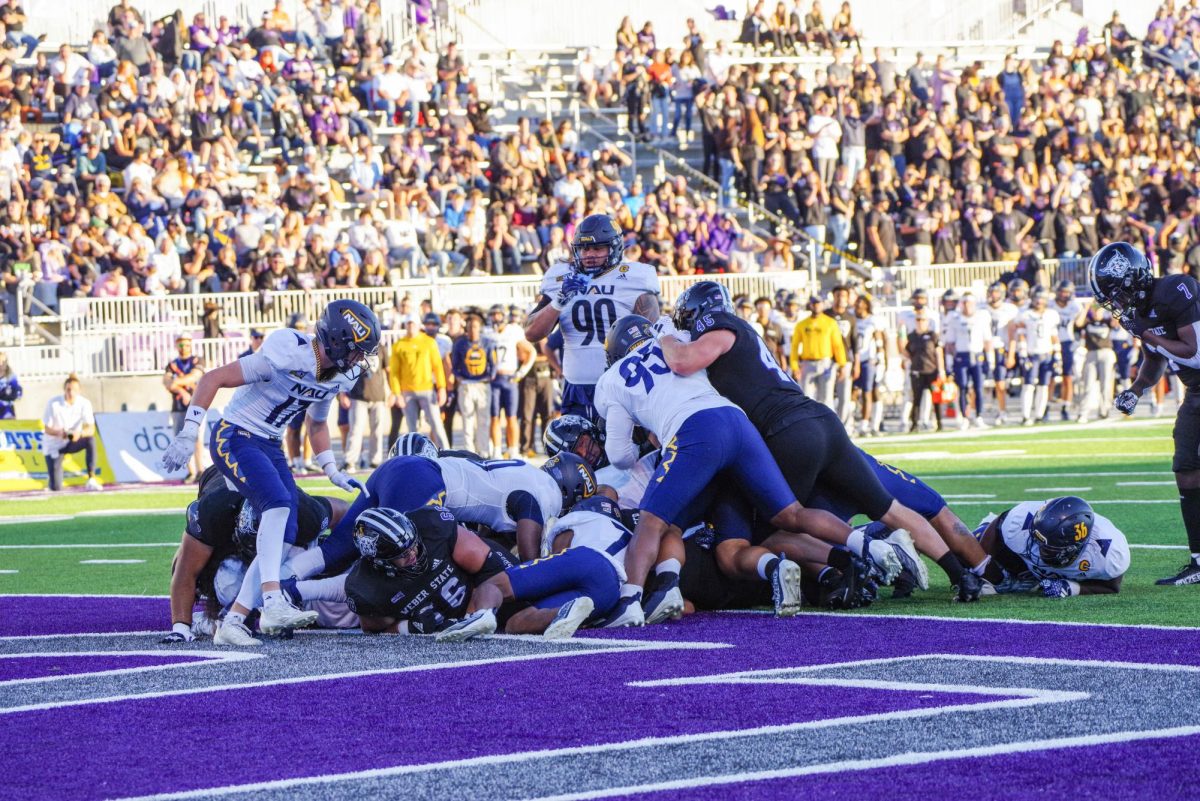In 1789, George Washington—then president of the budding nation—appointed 13 United States marshals: one for each of the 13 states. Now, according to the U.S. Marshals fact sheet, there are 94 marshals and over 3,000 deputy marshals across the U.S.

One of those 94 marshals, along with two deputy marshals who are WSU grads, visited campus on Feb. 4. They presented the history and mission of the nation’s oldest federal law enforcement agency and hoped to inspire current WSU criminal justice students to join the tradition and ranks of the U.S. Marshals Service.
About 60 students and faculty, including WSU President Brad Mortensen, were present in Lindquist Hall to learn about the service.

Weber State University, with the help of Bruce Bayley, department chair, director of forensic science and associate professor, recently entered into an agreement with the Utah District of the U.S. Marshals to provide an internship opportunity with the service.
Marshal Matt Harris, who is the presidentially appointed U.S. Marshal for the District of Utah, spoke along with former WSU football legend and current deputy marshal Nick Chournos and deputy marshal Andy Desmond.
Desmond took time to describe the current mission of the U.S. Marshals. The marshals are primarily responsible for security at federal courts and the protection of the federal judiciary, except for the U.S. Supreme Court.
The marshals are also responsible for fugitive apprehension, witness protection, federal prisoner transportation (including the service colloquially known as “Con Air”) and the management and auction of seized and forfeited assets. The U.S. Marshals are not the agency in charge of providing air marshals for commercial flights.
Desmond claimed that the marshals are exceptionally proficient in these duties. He also said that all participants in the witness protection program who follow the rules and guidelines of the marshals are perfectly safe.

Chournos explained that the witness protection program is entirely voluntary, and the proceeds from the auctions of seized and forfeited property go to the survivors of violent encounters.
On the law enforcement side, Harris explained that the U.S. Marshals deal with the most dangerous, “worst of the worst” fugitives. According to Harris, the service worked closely with state and local police agencies to arrest 804 violent criminals in Utah in 2019.
Furthermore, the marshals arrested fugitives with Utah-issued warrants in 18 different states and five foreign countries. On the national level, the marshals work closely with other federal law enforcement agencies, such as the FBI and the Bureau of Alcohol, Tobacco, Firearms and Explosives.
Chournos explained that the U.S. Marshals also keep track of sex offenders, especially if they move from one state to another.
Both Desmond and Chournos admitted that the U.S. Marshals go into more dangerous situations than other law enforcement agencies do on average. They face more risk and bodily harm in shootouts and even hand-to-hand combat, as a result.
However, they also emphasized that each member of the group has the skills and trust to watch out for each other.

“It is a brotherhood,” Chournos said.
Chournos also dismissed any notion that the marshals are just a group of trigger-happy law enforcement officials.
“We do not live for a shooting,” he said. “In fact, some guys retire after (a shooting incident).”
He also made it clear that interns will not face any dangerous situations or street duty but will gain meaningful insights into how the U.S. Marshals and the federal court system function. Some interns may have the opportunity to accompany the local deputy marshals to shooting exercises at the gun range.
Currently, the Utah District of the U.S. Marshals is limiting the internship to one Weber State student per internship period. Students who are interested in applying should contact Professor Bayley at bbayley@weber.edu.
Harris invited any interested students, not just criminal justice majors, to apply.
“We can teach you skills,” he said. “But we cannot teach you character or work ethic.”



















